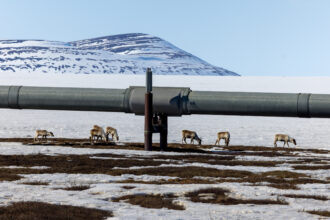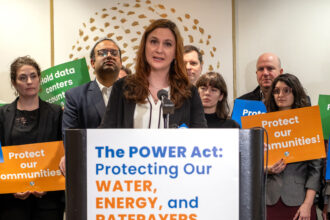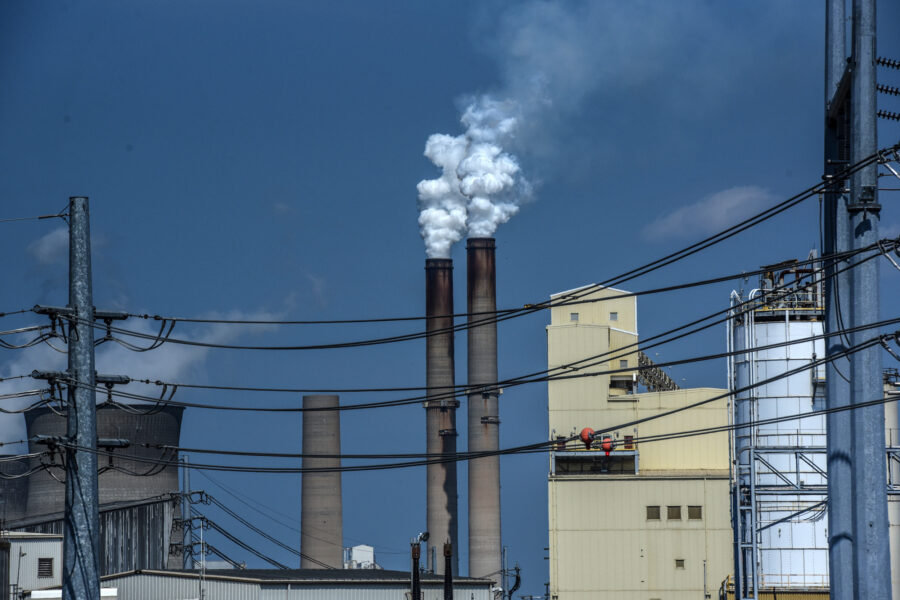The climate accord announcement is legitimately catching some heat for being too little, too late. The enormity of the crisis cries out for strong binding pollution reduction targets by all countries and massive infusions of public and private capital to catalyze a fast-track transition to a low-carbon economy.
But expecting we’d get all this at COP15 was never realistic. That’s why leading U.S. businesses such as Nike, PG&E and North Face are encouraged by these first positive steps from Copenhagen.
Businesses are clamoring for comprehensive national and international policies that provide certainty that all countries are ready to work together to tackle this colossal challenge. They see strong mitigation commitments, full transparency and enhanced public financing — especially from developed countries such as the U.S. — as essential building blocks for any future accord.
On all three of these fronts, advances were made.
President Barack Obama vowed to move America forward with national legislation that will reduce pollution, create new jobs and improve energy and national security. His pledge is exactly what U.S. businesses want to hear.
“We welcome the president’s sense of urgency and recognition that companies need certainty and a level-playing field in order to move to a low-carbon economy,” Nike Vice President Hannah Jones told me.
Language for verifying emission reduction efforts in developing countries is another encouraging step, although more work is obviously needed. Full transparency is critical for global companies such as Nike that compete and have operations in many of these countries. (Nike is the second biggest employer in Vietnam, for example.)
Knowing that these emerging economies — and major facilities operating in those countries — are all playing by the same rules and doing their fair share to reduce their carbon emissions is another way of leveling the playing field.
But perhaps the biggest positive from the last 48 hours of the conference is the acknowledgment by the U.S. that it must do more — far more — to boost mitigation and adaptation financing for countries most at risk from climate change impacts.
Earlier this week, 30 leading U.S. businesses sent a letter to the president urging him to make “new substantial commitments” in this regard.
The agreement by developed countries to mobilize $100 billion a year by 2020 to help developing countries is a positive.
Another positive is the growing awareness at COP that public financing has its limits and that creative new private financing mechanisms — mechanisms that can catalyze exponentially more private investment — are desperately needed to deploy energy-saving, low-carbon technologies on the global scale needed.
So, while they stopped short of calling COP15 a major victory, business leaders left Copenhagen with a tiny glow and, more importantly, a realization that most of the hard work still lies ahead.
“I’m pleased with the recognition that all the world’s nations must come together in finding solutions that know no borders,” Letitia Webster, North Face’s corporate sustainability director, told me in an e-mail.
“There’s an acknowledgment that climate mitigation and adaptation efforts must be everybody’s job regardless of where they take place.”
See also:
Conference of Parties ‘Takes Note Of’ Copenhagen Accord
Obama Proposes 3-Part Copenhagen ‘Bottom Line’ as Talks Reach Crisis Point
Climate Talks Overlooking Importance of Private Capital
Investors Ready to Fight Climate Change, But Government Policies Aren’t Helping
Majority of Top Businesses Now Set Emissions Targets, But Still Seek Global Policy Direction
Why Businesses (Big and Small) Should Support Climate Action
(Photo: CIDSE)
About This Story
Perhaps you noticed: This story, like all the news we publish, is free to read. That’s because Inside Climate News is a 501c3 nonprofit organization. We do not charge a subscription fee, lock our news behind a paywall, or clutter our website with ads. We make our news on climate and the environment freely available to you and anyone who wants it.
That’s not all. We also share our news for free with scores of other media organizations around the country. Many of them can’t afford to do environmental journalism of their own. We’ve built bureaus from coast to coast to report local stories, collaborate with local newsrooms and co-publish articles so that this vital work is shared as widely as possible.
Two of us launched ICN in 2007. Six years later we earned a Pulitzer Prize for National Reporting, and now we run the oldest and largest dedicated climate newsroom in the nation. We tell the story in all its complexity. We hold polluters accountable. We expose environmental injustice. We debunk misinformation. We scrutinize solutions and inspire action.
Donations from readers like you fund every aspect of what we do. If you don’t already, will you support our ongoing work, our reporting on the biggest crisis facing our planet, and help us reach even more readers in more places?
Please take a moment to make a tax-deductible donation. Every one of them makes a difference.
Thank you,












